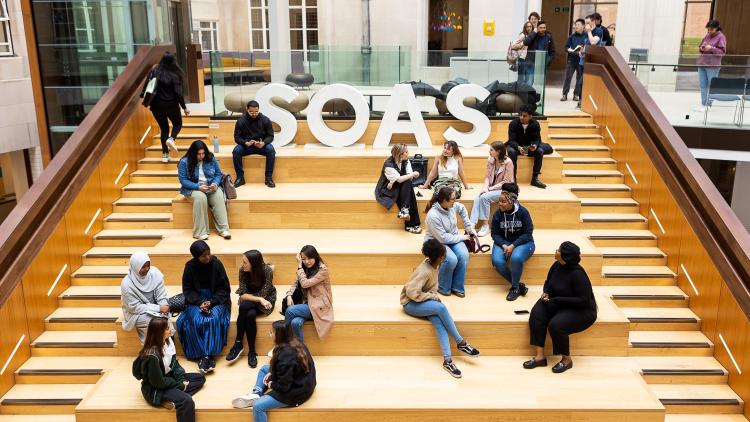Best university study and essay writing tips from a SOAS final-year student


One of the most intimidating challenges for newly-enrolled university students is managing workload and learning the ins and outs of academic writing. This is especially true for first-generation students, as well as international students, who may be unfamiliar with the essay-writing system typical of the Anglosphere.
With a 10000-word dissertation and dozens of essays behind me, here I come to the rescue, sharing the research and writing methods that worked for me throughout my undergraduate degree at SOAS.
Accept that you will have to learn a lot by yourself. You are significantly less hand-held at university
First of all, a reality check. The expectation for some students is that paying for a university degree comes with complimentary proofreading and editing services. In fact, because plagiarism regulations are taken very seriously across the academic sector, universities do not tend to provide more than general writing and referencing guidelines (see the academic essay writing modules SOAS offers).
The philosophy behind this is to insulate the writing process and foster independent thinking.
Then, how are new students meant to write their first academic-style essay? The answer lies in extensive reading of existing academic material. In my first year at SOAS, my first essay assignments were not due until late October, meaning I had plenty of time to dig into the readings assigned to me previously. While it can be challenging, this is a helpful learning experience: getting familiar with a new type of writing, and identifying its key features in terms of language and structure… in other words, learning to identify patterns by yourself and reproduce them.
I promise it will click after a while, and you will have mastered the basics of academic writing.
Research the topic and collect all relevant sources first
A key element of academic writing is objectivity – in other words, any claim should be supported by evidence. This means that having a variety of sources and authors to quote in your essays is extremely important. It is also important to build your understanding of the essay topic and the different schools of thought on the matter.
The approach that worked for me consisted in collecting all reading material first (such as digital academic journals on the EBSCO database or physical books from the Library catalogue), copying & pasting relevant paragraphs into a blank Word document as I read, ready to be paraphrased, summarised or quoted at a later stage. I also noted down the page numbers and references for each paragraph. This significantly simplified the writing process for me and helped me see logical connections between different sources – a bit like piecing a puzzle together!
Plan your writing and give yourself enough time
I do not like rushing, so I usually started working on my 3000-word essays (the standard for the School of Finance and Management) two weeks before the deadline. This gave me one week to put my sources together and one week to write and scope out new sources if needed, writing about 500–1000 words per day.
It is important to nail this part because it is a reflection of one’s time and project management skills, which junior professionals need to demonstrate after graduation. Indeed, your discipline at university is the skeleton for discipline at work, hence why having a degree is a requirement for many jobs – it is proof that you can stay disciplined and committed for x years.
By planning your writing, you are also doing yourself a favour: no rushing = more time to rest and lead a balanced life. Your body will thank you!
Just get down to writing
You are staring at that blank Word document, feelings of dread creeping up on you. Stop the negative flow of thoughts by writing anything down. You can start with something as small as building a cover page, writing down the current academic year and assignment instructions. You can always trim or edit later, so just get started and overcome the writer’s block!
Write the body first: it is the most time-consuming part
An essay would typically follow the introduction–body–conclusion structure.
In my view, the introduction and conclusion are more like summaries you can write after you have developed your arguments, with the conclusion also clarifying the added value of your own research and suggesting directions for future research.
Plus, by writing the body first, your thought process will not be restricted by whatever you have written in the introduction. Indeed, the back-and-forth nature of research means that you will frequently have to rephrase sentences as you think of new arguments and integrate new sources.
It will also help to stick within the word count. For my 3000-word essays, I usually limited the introduction and conclusion to no more than 250 words each, leaving me 2500 words to develop my arguments in the body.
Get familiar with the referencing system
Most Departments at SOAS follow the Harvard referencing system, a notable exception being the Law department. Check with your lecturers at the start of the academic year.
The SOAS Referencing Guide is available on the “Starting your research” section of the SOAS website.
There are also useful tools to simplify referencing, such as Zotero, which acts as a repository for all of your sources and generates citations automatically.
Check for spelling and grammar mistakes. Make sure that the language flows naturally
You should strive to proofread your work by yourself to avoid committing plagiarism and develop your own proofreading skills. However, you can still ask a native English speaker among your friends or family to point out language inaccuracies within the limits of the SOAS Academic Misconduct policy (available on the “Degree regulations, policies and procedures” webpage).
SOAS also offer an ethical writing feedback service in partnership with Studiosity (accessible via the Bloomsbury Learning Environment, BLE) and pre-sessional English courses for international students. In addition Study Skills, based in LTE, offers workshops and 1:1 tutorials for all UG and PG students for support with their writing; and In-sessional offers dedicated writing support for all international students for whom English is an additional language.
Chosen to write a dissertation? Don’t panic
View it as an extended essay. The main difference lies in the fact that you are supposed to contribute to the academic literature in order to receive a high mark in a dissertation. Take your time in finding a topic that could fill this gap and, most importantly, a topic that you like. Your supervisor will help you define the research question according to their area of expertise.
Looking to have a clearer idea of what writing a dissertation is like? This is the timeline I followed:
- September: I chose a suitable dissertation topic.
- October: I identified academics in my department whose research interests were compatible with mine.
- November: I was assigned my dissertation supervisor.
- November to December: Preliminary literature research: I attended two meetings with my supervisor to narrow down my research question.
- January-February: I started connecting my sources together and wrote a succinct initial draft.
- March: I met with my supervisor to discuss and approve my dissertation outline.
- Early April: I asked and obtained suggestions for more reading material and sources. Enriched my body with new material.
- Mid-April: I attended a meeting with my supervisor to restructure my dissertation following the insertion of new material. Wrote more.
- Late April: I attended a meeting with my supervisor to clarify theoretical and logical issues in my dissertation. Wrote more.
- Early to mid-May: I wrote, wrote and wrote.
- Mid-May: I had a final dissertation revision meeting with my supervisor. I submitted it a week before the deadline with 8512 words (maximum 10000).
That’s a wrap. I have shared all my academic tips. I hope you feel like you have the right tools to tackle the writing challenges that await you in your degree course. Remember – it is a process! And do not forget to enjoy university life along the way.
About the author
Eleonora is a SOAS Digital Ambassador and final year BSc International Management for China student on her Language Year Abroad in Taiwan. She is passionate about and has previously worked in Professional Services in Higher Education. She likes craft beer, reading non-fiction and Chinese drill music. Preferably all at once.





